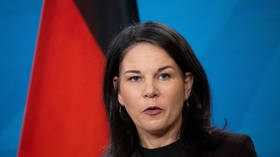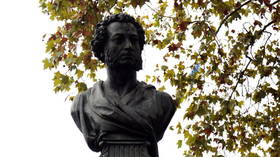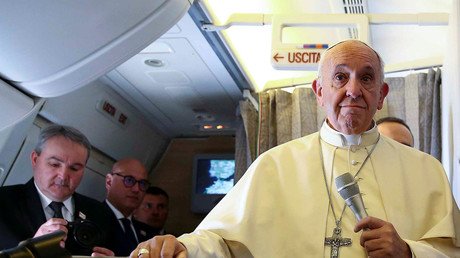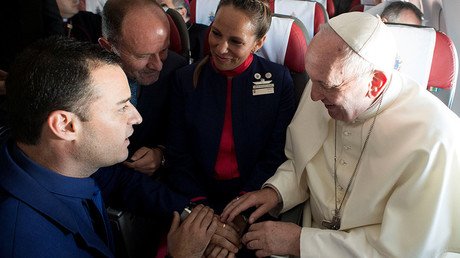‘Fake news’ started by serpent devil who tempted Adam & Eve - Pope
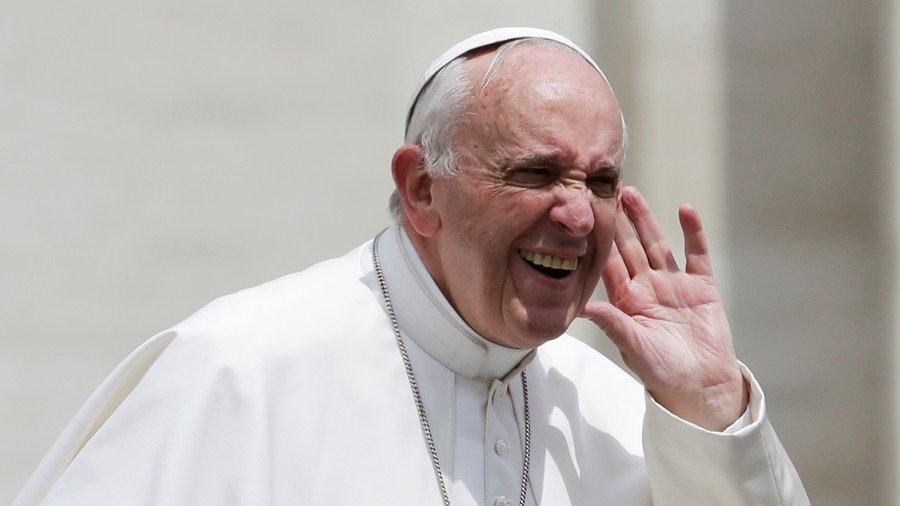
Pope Francis condemned ‘fake news’ as the work of the devil in a message to journalists ahead of World Communications Day.
The pontiff, who last week apologized for suggesting abuse victims in Chile were guilty of slander, reminded reporters of the damage that can be done when distorted data or misinformation is widely shared. Commenting on the phenomenon of ‘fake news,’ the head of the Roman Catholic Church described disguising falsehoods as legitimate news as the work of the devil.
He suggested ‘fake news’ stems from the serpent in the tale of original sin, in which Adam and Eve are deceived into eating the forbidden fruit in the Garden of Eden.
Popemobile grinds to a halt as Pontiff aids fallen police woman (VIDEO, PHOTO) https://t.co/geSQdimuT4pic.twitter.com/8EngXxTZWs
— RT (@RT_com) January 19, 2018
“This is the strategy used by the ‘astute serpent,’ mentioned in the Book of Genesis, which, at the dawn of humanity, became the author of the first fake news,” he said.
The subject of ‘fake news’ is a contentious one, with a recent Gallup and Knight Foundation study of 19,000 Americans finding that 66 percent of people do not think the media does a good enough job of separating fact from opinion.
READ MORE: Offensive & painful’: Abuse victims slam pope over slander accusations
Days after backtracking on comments in which he accused abuse victims of committing slander against against Chilean Bishop Juan Barros, who is alleged to have covered up a sex scandal involving Reverend Fernando Karadima, Pope Francis weighed in with his thoughts on ‘fake news.’
“The effectiveness of fake news is primarily due to their mimetic nature, ie the ability to appear plausible,” he said in a document entitled, ‘The truth will make you free.’
“The outcome of this logic of disinformation is that instead of having a healthy comparison with other sources of information, which could positively put prejudices into questions and open a constructive dialogue, we risk becoming involuntary in spreading biased and unfounded opinions,” the pontiff added.
He praised initiatives aimed at teaching people, “not to be disclosers,” of fake information online.
READ MORE: Pope Francis hit in face by object thrown from crowd before mass in Chile (VIDEO)
“I would therefore like to address an invitation to promote a journalism of peace… a journalism without pretense, hostile to falsehoods, to slogans and bombastic declarations; a journalism made up of people for people,” he concluded.
World Communications Day was set up in May 1967 by Pope Paul VI as a means for the Catholic Church to assess the changing landscape of the mass media.
Like this story? Share it with a friend!







